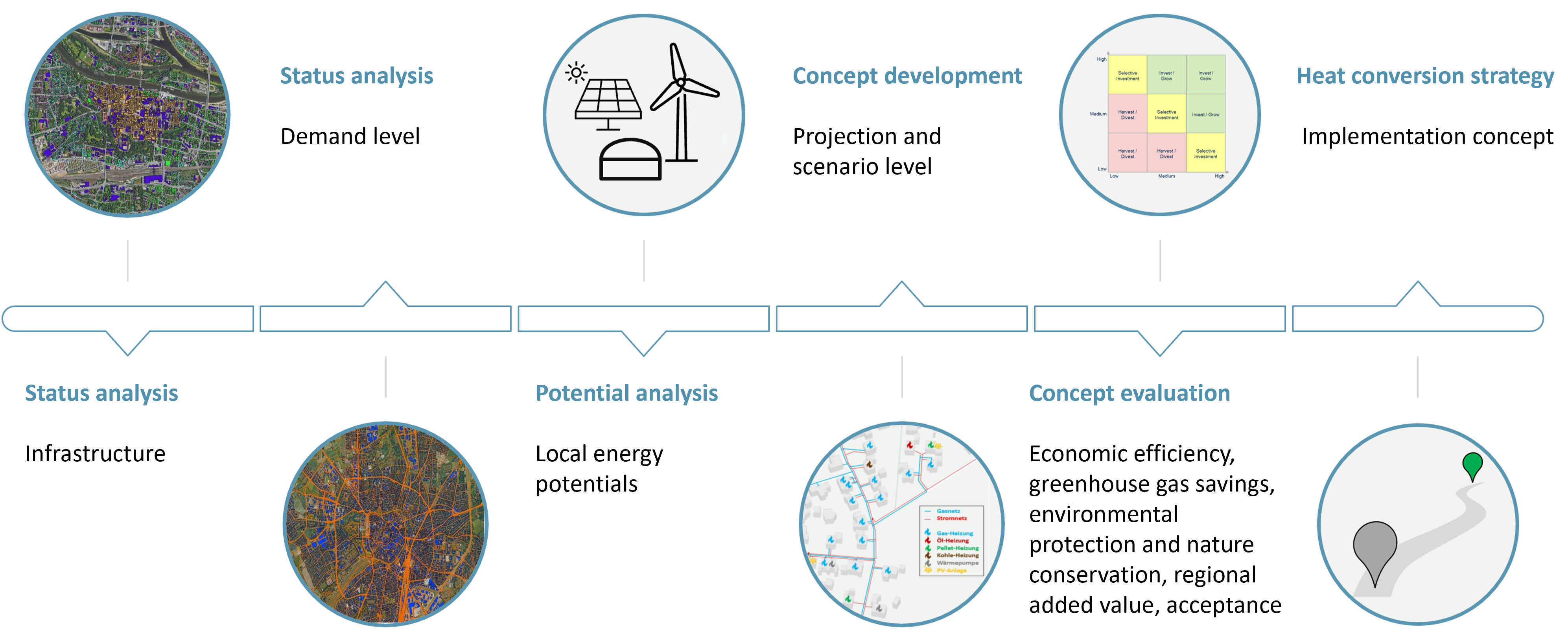

Sie möchten über aktuelle Veranstaltungen des GWI informiert werden?
Melden Sie sich hier kostenlos und unverbindlich zu unserem Veranstaltungs-Newsletter an.

Sie möchten über aktuelle Veranstaltungen des GWI informiert werden?
Melden Sie sich hier kostenlos und unverbindlich zu unserem Veranstaltungs-Newsletter an.

THE PATH TO THE ENERGY SYSTEM OF THE FUTURE
Municipal heat planning is the central coordination tool at the community level to ensure long-term heat supply. It focuses on the goals of climate neutrality, economic efficiency, and supply security, making it a central element of the local energy transition.
The transformation of the energy supply towards greenhouse gas neutrality by 2045 is one of the central objectives of politics and society. The heat transition plays a significant role in this, as in Germany about half of the final energy is used for heat provision, and this energy has so far been mainly provided by fossil fuels.
The aim of municipal heat planning is to develop an ecological, economical, and secure heat solution for municipalities as a long-term perspective, keeping an eye on social compatibility and presenting measures and implementation options from the community's perspective. This requires intensive coordination of the necessary transformation processes between the main actors of a municipality, the supply companies, and the local housing industry.
The essential basis for municipal heat planning is a solid analysis of existing needs and a forecast of their development, as well as a potential analysis of local renewable energy sources, e.g., in the form of photovoltaics, wind, or geothermal energy. Examples of this can be seen in Fig. 1 and Fig. 2. In addition, potential waste heat sources such as waste incineration plants and usable industrial waste heat should be identified and examined for their suitability.

The GWI has been working extensively in the field of district analysis and the development of integrated energy supply concepts for a long time and has acquired extensive expertise in this area, which has also been incorporated into the practical guide for municipal heat planning by DVGW and AGFW.
For the implementation of municipal heat planning, GWI has a GIS-based German-wide energy system model and close collaborations, enabling comprehensive execution of municipal heat planning from a single source.

Bildmotiv Seitenanfang: © iStock; petovarga